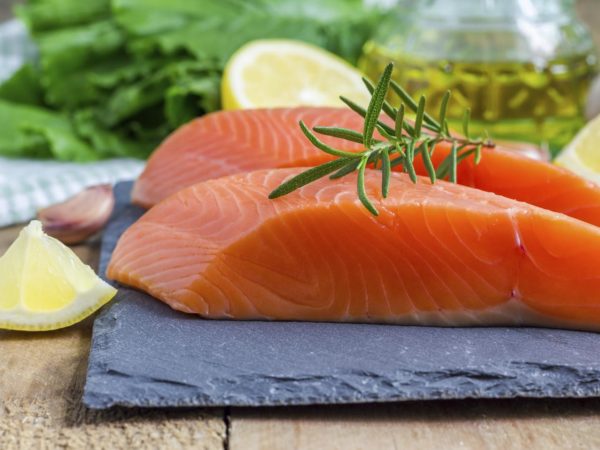Coenzyme Q10 (CoQ10)

What is CoQ10?
Coenzyme Q10 (CoQ10) is a natural antioxidant synthesized by the body, also found in many foods, and available as a supplement. It comes in two forms: ubiquinol, the active antioxidant form, and ubiquinone, the oxidized form, which the body partially converts to ubiquinol. Many multi-ingredient supplements contain both forms of CoQ10. In general, coenzymes support enzymes in their various biochemical functions. Coenzyme Q10 is a vital participant in the chain of metabolic chemical reactions that generate energy within cells. It is found in every cell of the body (hence the name ubiquinone), but is present in higher concentrations in organs with higher energy requirements such as the kidneys, liver, and heart.
Many medical studies demonstrate benefits of supplemental CoQ10, most of which stem from its vital role in oxygen utilization and energy production, particularly in heart muscle cells.
Why is CoQ10 necessary?
Coenzyme Q10 is beneficial for heart health in many ways. It assists in maintaining the normal oxidative state of LDL cholesterol, helps assure circulatory health, and supports optimal functioning of the heart muscle. CoQ10 may also help support the health of vessel walls. In addition, it may play a role in reducing the number and severity of migraine headaches, and improving sperm motility in men. Some research has indicated therapeutic value in high doses to slow the progression of Parkinson’s disease, but a 2011 study by the National Institute for Neurological Disease and Stroke found no consistent benefit in slowing symptoms of neural degeneration. A few small clinical trials have indicated CoQ10 supplementation may help prevent and treat inflamed gums, a condition known as gingivitis.
What are the signs of a Coenzyme Q10 deficiency?
Studies in both animals and humans have associated significantly decreased levels of CoQ10 with a wide variety of diseases and conditions, including fibromyalgia, diabetes, and cancer, as well as neurodegenerative, mitochondrial, and muscular diseases. Since this enzyme is found in high concentration in heart muscle cells, deficiency has been associated with cardiovascular problems including angina, arrhythmia, heart failure and high blood pressure. Problems with blood sugar regulation, gingival (gum) health, and stomach ulcers have also been associated with CoQ10 deficiency. Those who are taking statins to lower cholesterol are at particular risk for deficiency, because these drugs block Coenzyme Q10 synthesis in the body. Low CoQ10 levels in patients on statins can contribute to the common side effects of statin therapy such as fatigue and aching joints and muscles.
How much, and what kind of Coenzyme Q10, does an adult need?
There is no official Daily Value recommendation, but Dr. Weil suggests at least 90 to 120 mg of supplemental CoQ10 for any adult taking statin medications and for those with a family history of heart problems, or who is at increased risk for cardiovascular disease. This dosage is also appropriate for otherwise healthy men and women as a preventive measure and to help maintain a healthy cardiovascular system. Coenzyme Q10 is fat-soluble, so take the supplement with a meal containing fat. Seek out the soft-gel ubiquinol form when taking CoQ10 as a standalone supplement, as this has greater antioxidant efficiency than the ubiquinone form.
How much CoQ10 does a child need?
Dr. Weil suggests consulting with your child’s pediatrician before starting him or her on CoQ10.
How do you get enough CoQ10 from foods?
Although the body is capable of synthesizing CoQ10, Dr. Weil believes that adding foods high in Coenzyme Q10 to the diet and taking a daily supplement is advisable for the at-risk populations indicated above. A typical American diet will include approximately 10 mg of CoQ10 daily, so supplementation is usually necessary to reach the amounts that Dr. Weil regards as optimal.
Are there any risks associated with too much Coenzyme Q10?
There is limited research on the toxicity of CoQ10, but preliminary evidence indicates that supplemental doses of up to 1,200 mg a day may be beneficial for those with certain health conditions, especially Parkinson’s disease, with no known side-effects. Some studies have found high daily dosages safe up to 3,600 mg, however gastrointestinal discomfort was reported with these high doses.
Are there any other special considerations?
- CoQ10 is being used in research for improving the immune function of people with HIV or AIDS.
- More research is needed, but Coenzyme Q10 seems to improve muscular dystrophy patients’ exercise capacity, heart function, and overall quality of life.
- There are preliminary indications that CoQ10 may help slow the progression of dementia in Alzheimer’s
- CoQ10 has also shown promise in preventing migraine, and supplementation appears to decrease headache frequency, especially in children and adolescents.
- A 2023 study suggests that CoQ10 may help mitigate the symptoms of Long COVID Syndrome, but much more research in needed.
Originally Posted January 2012. Updated June 2024.












